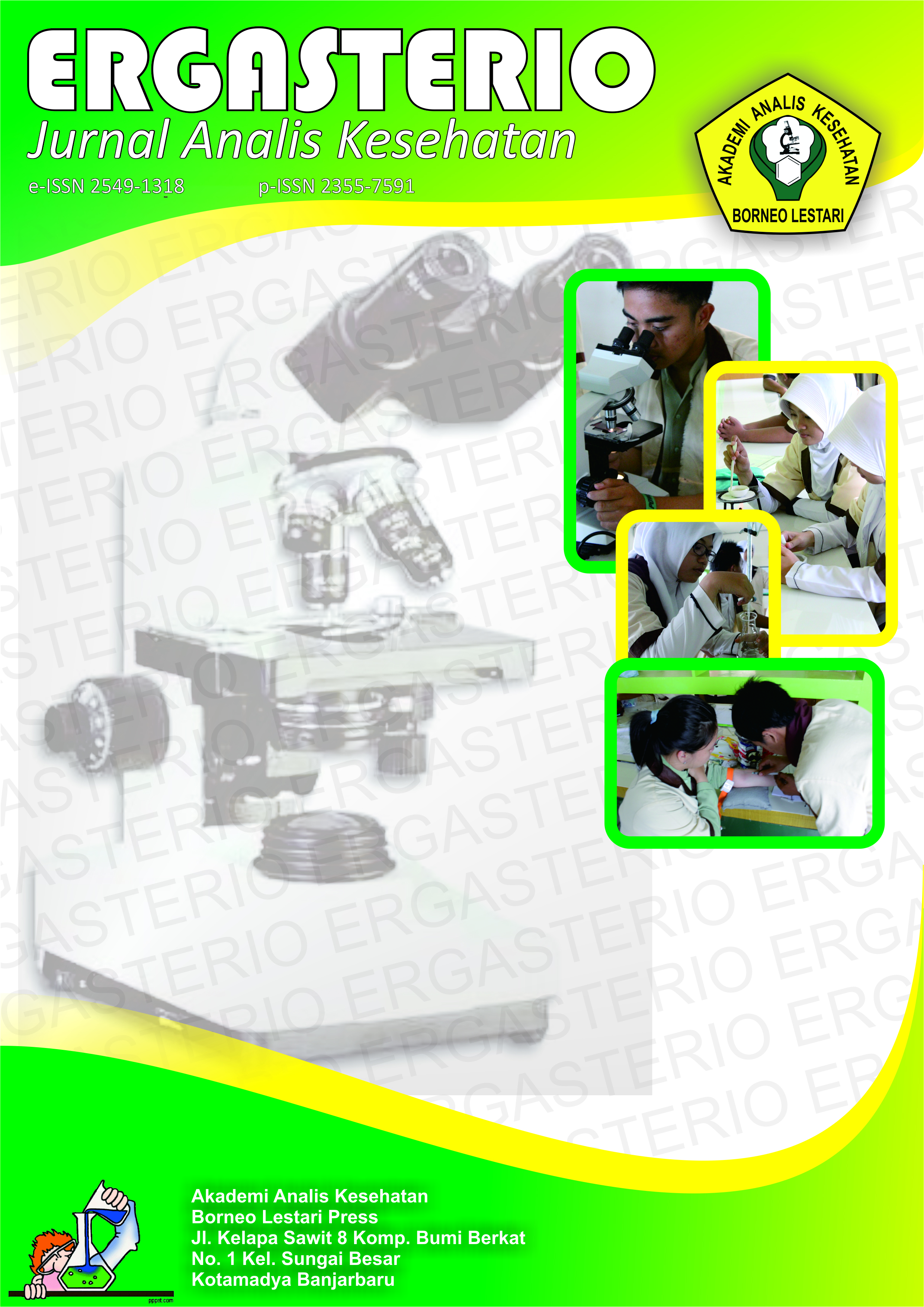Main Article Content
Abstract
Fascialopsis is a trematode worm disease of the Fascialopsis buski species which is endemic in Southern and Central China, Taiwan, Thailand, Vietnam, Malaysia, India, Laos, Bangladesh and Indonesia. The South Kalimantan region consists partly of swampy waters which are inundated for most of the year. The case of Fasciolopsis buski is endemic in 7 villages (Sei Papuyu, Kalumpang Dalam, Bird's Nest, Talaga Mas, Putat Atas, Padang Bangkal and Sapala-Bararawa) in three sub-districts, namely Babirik, Sungai Pandan and Danau Panggang districts, covering 1,555 people with prevalence rates as much as 7.8% positive Fasciolopsiasis. The purpose of this study was to determine the percentage of Fasciolopsis buski in fish finders, to know the characteristics of fish finders, to determine whether there was Fasciolopsis buski in fish finders or not. knowing the supporting factors whether or not there is Faciolopsis buski infection in fish searchers. This type of research is a literature study. The literature study method is a series of activities relating to the method of collecting library data, reading and taking notes, and managing research materials. Based on multiple logistic regression analysis, it turns out that the significant variables with the incidence of Fasciolopsis are drinking raw water, consuming swamp plants without cooking them first, playing in the swamp, and knowledge of Fasciolopsis
